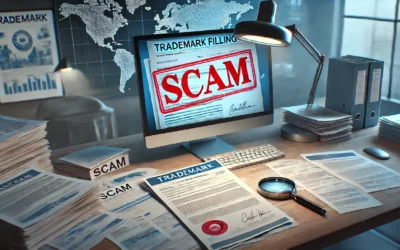Product or service name must be “distinctive” in order to be protectable as a trademark. So what does this mean in practice?
Trademarks are commercial signs that are capable of distinguishing the goods or services of one company from those of other companies. Trademark attorneys always recommend using “distinctive” names. So the question is, what signs are “distinctive” in practice and how to assess that.
Distinctiveness is typically divided into five groups.
● Generic names. Generic names must be free for everybody to use in commerce so they cannot be protected with trademark. It is possible to use generic names as product names, they just cannot be protected so everybody else is also allowed to use the same generic name. It is very difficult to build a brand on a generic term. Generic terms can be used effectively in distinguishing company’s products from each other (e.g. Google Maps, Google Calendar, Google Analytics, etc.).
Example
Blogger for blogging platform
● Descriptive names. These are names that describe some characteristic of a product or service, such as their quality, quantity, origin, characteristics, etc. Generally speaking these cannot be protected, unless they are used to such extent that the “become” trademarks, i.e. the public starts identifying these are indicators of origin rather than descriptive terms So descriptive names can become protectable trademarks over time, but it is generally expensive to get them protected and there is a lot of uncertainty involved.
Examples
Sharp for televisions
DoubleClick for online advertising
● Suggestive names. Suggestive names tells us indirectly something about a product and names can be protected as trademarks. For example, Greyhound and Jaguar are suggestive brand names for transportation services and cars. Both imply speed. Suggestive names work well as trademarks from both legal and marketing point of view. It often makes it easier to communicate a brand if their is some indirect connection to the product or service.
Examples
Greyhound for transportation services
Jaguar for cars
● Arbitrary names. These are words and expressions that are taken out of context. Simply put, these are generic words but not in the field where they are being used as a trademark. These make good trademarks from legal point of view.
Examples
Apple for electronics
Camel for cigarettes
● Fanciful / invented names. There are made up words, like Pepsi or Kodak. These work well as trademarks and enjoy strong legal protection.
Examples
Kodak for photography equipment
Pepsi for beverages
So those are the categories, how to apply that in practice
When a particular trademark is considered distinctive or not depends on the local practice. For example, the threshold for distinctiveness in the US is lower than in the EU.
It is typically easy to spot fanciful (invented) and arbitrary marks. These are clearly protectable. It is equally easy to spot generic terms and highly descriptive terms. It is somewhere in between of descriptive and suggestive categories where it is difficult to asses whether trademark is protectable. In practice the question is not simply whether a name is descriptive, but rather about the degree of descriptiveness. The examples above (Sharp, DoubleClick) are easy to spot as descriptive and not protectable. In real life it is typically much harder to say when a name is descriptive. The EU trademark office takes the view that relationship between the mark and the descriptive meaning must be concrete, direct and noticeable without further reflection. Vague and indirect references do not make the mark devoid of distinctive character. Here are some real life examples from EUIPO:
Accepted
‘Greensea’ for products used in cosmetology
‘Deli Friends’ for food products
Not accepted
‘‘Trustedlink’ for software for e-commerce
‘Quickgripp’ for hand tools



